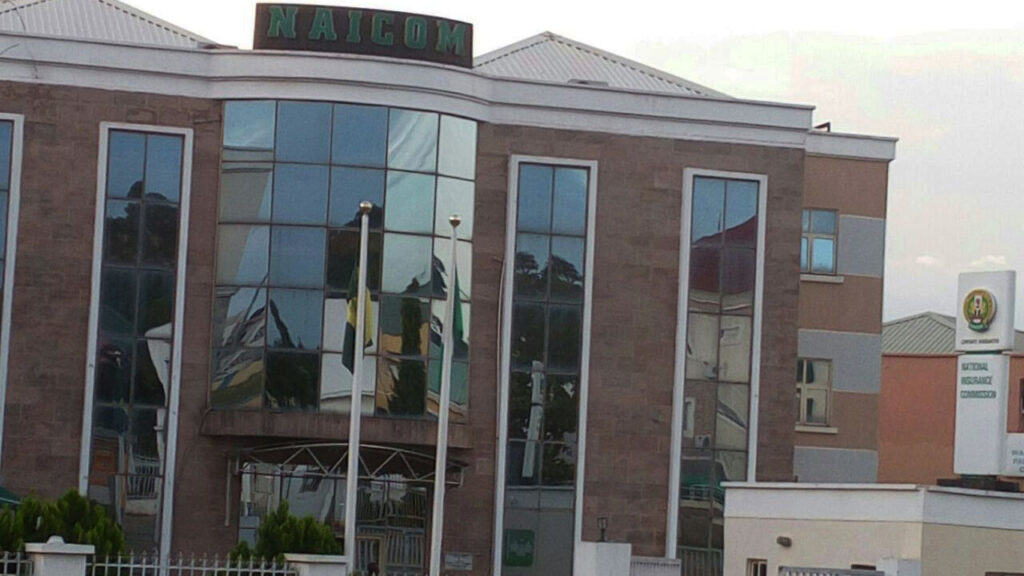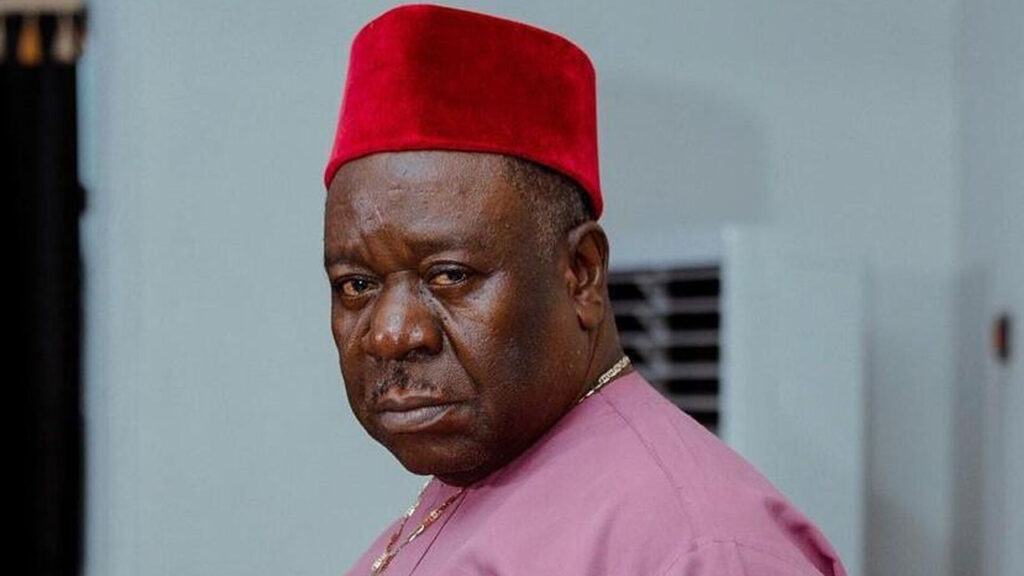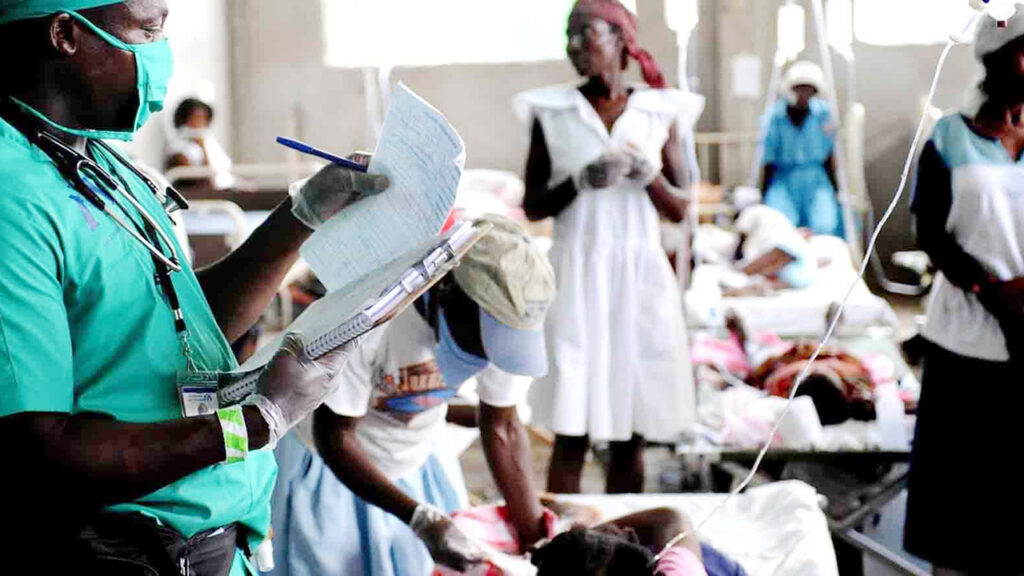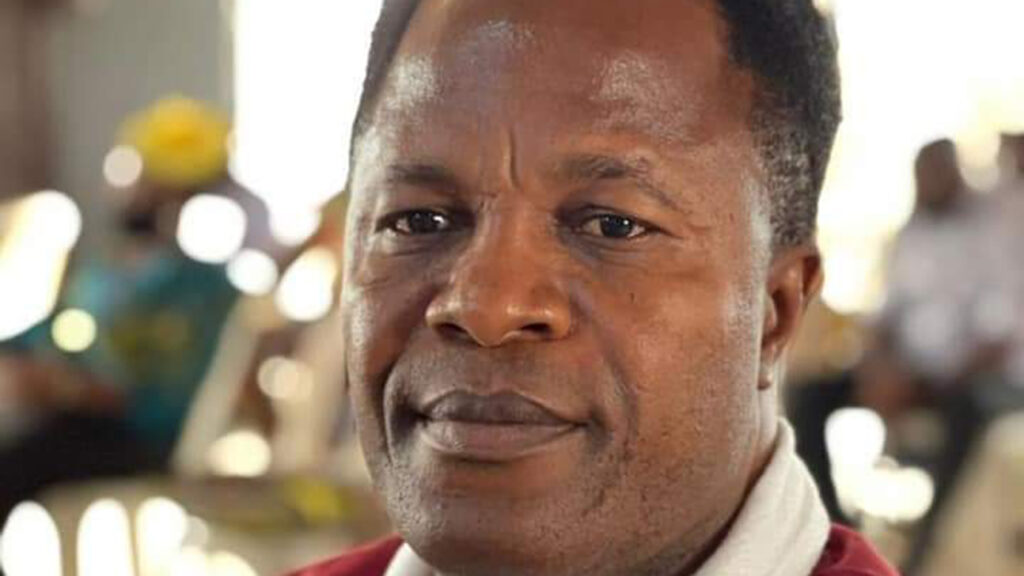
Since he was “settled” by his master over 15 years ago, Nnadozie Anaele, a businessman who owns a thriving electronics business has refused to listen to insurance companies that are jostling for his attention.
Anaele’s hatred for insurance outfits, their offerings and policies has to do with the role that one of them allegedly played in his former master’s untimely death, after things went south for his business.
He has, however, vowed not to take out an insurance policy until insurance firms shed the controversial toga that most of them currently wear.
“As a young person who just started learning the ropes in business, I remember agents of a particular insurance firm coming to our shop to meet my then boss years ago. Whenever they come, my boss would make some payments, which were receipted. At other times, some of us (his boys) would go and make payments on his behalf. In those days, the insurance people would always say that taking out insurance policies amounted to ‘saving for the rainy day,’ hence our boss did it religiously,” Anaele said.
“Unfortunately, after a bad business deal seriously dislocated my former boss, the insurance company sang a totally different tune, and the man was shocked at the turn out of events. Shortly, he became very depressed. Those of us that he trained in business rallied round and raised some funds to stabilise his business. But the harm that the shock did just refused to go away. He did not fully recover from the back and forth movement, which he was subjected to. Before long, he passed on.
“Over the years, I’ve seen a number of friends and relatives complain bitterly over insurance companies’ failure to indemnify them for some strange reasons. This coupled with the poor perception of insurance in this country is why I am not ready to entertain talks about insurance. Unfortunately, most insurance firms are not doing enough to change that reception till date.”
Apart from poor penetration, and poor perception of insurance policies by Nigerians, several other factors have made insurance offerings unattractive unlike what obtains elsewhere. For instance, indigenous insurance firms’ inability to handle multi-billion naira policies involving large companies, especially oil giants constitutes a drawback to the sector’s growth, just as the issue of local content is still a challenge in the industry.
Beyond this, some other factors have also contributed to challenges faced by the sector. It is these stark realities that made the fresh injection of capital into the sector inevitable, so as to create stronger and bigger operators in the industry, who would also have the capacity to provide insurance cover no matter the size.
Since the recapitalisation of insurance industry was initiated by the National Insurance Commission (NAICOM), a groundswell of activities have taken place with different camps speaking for and against the initiative. Be that as it may, insurance companies were expected to achieve, at least, 50 per cent of the capital requirements by the end of last year, while September 2021 was set as the final deadline for full recapitalization.
Details of the recapitalisation exercise as contained in a NAICOM circular issued on May 20, 2019, indicated an increase in the paid-up share capital of life companies from N2b to N8b, general business moved from N3b to N10b; composite business moved from N5b to N18b, and reinsurance companies moved from N10b to N20b.
The NAICOM had also made it clear that the recapitalisation of the sector was necessary to make liquid funds available for insurance companies to have the capacity to pay for indemnities and claims as at when due, as against their current reliance on fixed assets and property.
There is also no gainsaying that insurance penetration in relation to the GDP in the country (which is put at 0.4 per cent in a population of over 200 million people), underscores untapped opportunities open to investments in the sector, with the hope of emerging stronger while also contributing reasonably to the economy by consecutively increasing capacity.
While the minimum paid-up share capital requirement was supposed to take effect from the original commencement date (May 20, 2019) for new applications, the existing insurance and reinsurance companies were required to fully comply not later than 30th June 2020.
In an update signed by Head, Commissioner for Insurance Directorate, Rasaq Salami said: “Further to the circular issued by NAICOM on May 20, 2019 increasing the paid up share capital of insurers and reinsurers in Nigeria and, the subsequent directives to companies to submit their recapitalisation plans by August 20, 2019 the commission notified all insurance stakeholders that it received plans of forty-seven (47) insurers and two (2) reinsurers.”
Salami explained that in keeping with the recapitalisation roadmap, the commission had concluded a review of the submissions, and communicated to individual companies on their positions as detailed as follows, “twenty six (26) companies have been granted “No Objection” to proceed with their plans; the plans of 17 companies were corrected, and have been advised to re-submit their new plans using paid-up capital, and not shareholders fund; four companies do not have the requisite 2018 financial statements and are thus, advised to review their plans of using IPO.”
Others were that one company had litigation issues and was advised to resolve them as soon as possible to enable its progress; one company’s submission was noted to have met the necessary requirements; the review of submissions from two companies was ongoing, while, three companies were yet to submit their recapitalisation plans.”
The statement stressed that NAICOM resolved to adhere to the recapitalisation roadmap towards achieving its desired objectives in the best interest of all stakeholders.
However, while operators were gradually settling down, with some of them becoming clearer on funding sources, foreign insurers that had almost cleared their tables on large-size local insurers began the tidying up plans with strategic investors, as well as funds from assets restructuring.
But despite the promise held by the recapitalisation exercise, and the attendant fuss that it generated, NAICOM had to suspend the exercise for the second time in three years, following a court order directing the regulatory body to do so. This was after some stakeholders in the industry filed suits asking the court to stop it from proceeding with the exercise.
The scenario was similar to what happened in 2018 when some distressed shareholders equally took the commission to court to stop the then tier-based recapitalisation exercise, under the then Commissioner for Insurance, Alhaji Mohammed Kari.
December 31, 2020 was the deadline for underwriting companies to raise 50 per cent of the new capital, while the remaining 50 per cent would have been met in September 2021 if the regulatory body had not suspended the exercise.
NAICOM’s spokesperson, Salami while confirming the suspension then said: “You are aware that the issue is in court and that there is an interim order of the court. NAICOM, being a responsible and law-abiding organisation, respects the order of the court.”
Early last December, the House of Representatives had ordered the discontinuation of the recapitalisation exercise, and wrote to NAICOM regarding that.
Stating that it was worried about the impact of the latest economic challenges such as the COVID-19 Pandemic, and the #EndSARS protest, the House of Representatives in its resolution demanded that the NAICOM suspended its December 31, 2020 mandatory deadline for the first phase of 50 per cent of the new paid-up share capital for insurance and reinsurance companies.
The Lower Chamber said: “The suspension is expected to last for six months from January – June 2021 and is necessary to give the insurance operators a soft landing, as well as cushion the effects of COVID-19 and other unforeseen circumstances they might have suffered.”
Also, as a result of some shareholders going to court to challenge the recapitalisation process, a Federal High Court sitting in Lagos temporarily stopped NAICOM from taking any further steps in effecting its recapitalisation deadline against insurance and reinsurance companies.
Justice C. J. Aneke of the court made the order while delivering a ruling in an ex parte application brought before him by the Incorporated Trustees of the Pragmatic Shareholders’ Association of Nigeria.
The motion marked FHC/L/CS/1797/2020 and filed on December 15, 2020, was moved on behalf of the group by their lawyer, I.C. Ifedora.
The applicant prayed the court for an order of interim injunction restraining the defendant and its agents from taking any further steps in the recapitalisation process in the insurance industry, pending the hearing and determination of its motion on notice already filed before the court.
Despite conflicting interests among stakeholders, analysts are of the opinion that with recapitalisation, the industry would have enough resources to attract quality manpower, equip underwriters with necessary skills and the sector with the capacity to insure high risks ventures, increase retention in the local market, and take advantage of the untapped resources.
The Guardian findings revealed that some large-size insurers may, apart from recapitalising, also go ahead to merge with small companies in a bid to stabilise the market without many casualties from the exercise.
Presently, one of the major troubles facing underwriting businesses is their inability to raise their capital base to meet the proposed requirement. This in itself has become a major source of worry for many industry stakeholders.
Although the COVID-19 outbreak is flattening, the pandemic has set the global economy spiraling, with recovery in some countries, predicted to remain sluggish for the next few years.
The Nigerian economy is not isolated from this development as its revenue continues to shrink. Many companies are closing businesses, while those still in operation are struggling to survive. Investment is shrinking just like other areas of the economy.
This poses a serious challenge to insurance industry recapitalisation, an exercise that started long before the pandemic struck. And even though the NAICOM had extended the deadline to September 2021 before the ordered suspension, some underwriters are still facing a Herculean task sourcing funds to meet the new recapitalisation deadline.
According to the Managing Director/Chief Executive Officer, Universal Insurance Plc., Ben Ujuatuonu, who spoke ahead of the suspension: “With companies closing down globally coupled with increasing financial challenges, it will be difficult for the sector operators to attract foreign investments to scale up their capitalisation.
He noted that investors who initially showed interest in the sector wanted to invest in the country before now requiring bailout themselves, adding that, “the recapitalisation exercise is going to be tough, especially for those contemplating foreign investments.”
He expressed concern about the second option – the local investment market saying local investors might not have the financial muscle to bail out an industry as big as the insurance sector.
“The performance of the capital market has not been too convincing. So, where else will the funding come from? It is going to be a challenging year for insurance operators, no doubt,” he said.
Be that as it may, several investors are currently said to be showing interest in the insurance industry based on the perceived potential for growth, especially given the low level of insurance penetration in the country.
In fact, before the suspension of the initiative mergers and acquisition discussions were ongoing among operators with a view to meeting the new capital adequacy requirement.
The Director, Policy, and Regulation, NAICOM, Pius Agboola, who made the disclosure informed that some underwriters were also scouting for partners to merge with, adding that only six companies indicated interests in mergers and acquisitions.
“Only six companies have indicated an interest in mergers and acquisitions out of 44 companies reviewed,” he said then.
The director who explained that NAICOM had restricted the insurance companies from taking loans to meet their recapitalisation needs, also said that while some of the companies that borrowed funds during the last recapitalisation exercise were doing well, majority of them have been acquired by foreign investors.
“If any of them wants to bring in money, they must become owners and become part of the management. Nobody will give them money and sit back waiting for returns. When they are owners, they will have directors and will know how the company is being run. If the person at the helm of affairs is not doing well, they will fire him and employ another person,” Agboola said.
Unitrust Insurance Company Limited, it was learnt, is considering a merger with another local underwriting firm to increase its capital base to N10b, the new capital benchmark for general business underwriting.
Speaking on the development, the Managing Director/Chief Executive Officer of the Company, Mr. John Ijerheime, said the firm has met 67 per cent of the required capital, implying that it has surpassed the December requirement.
“Currently, we have 67 percent of the N10b new capital requirement which is 17 percent higher than what the regulator required by December. So, what our shareholders are considering is whether we want to merge or stand-alone? If we want to stand alone, we should be able to do that. But if we want to merge, we are already discussing with an insurance firm for a business combination,” he said.
Most of the companies have planned to raise funds through share premium, capitalisation of retained earnings, Initial Public Offerings (IPOs), right issues or private placement, or a combination of these avenues.
AIICO Insurance Plc., for instance had earlier submitted an application to the Nigerian Stock Exchange (NSE) for an approval for a right issue of 4, 357, 770, 954 ordinary shares of fifty kobo each at eighty kobo per share, based on five new ordinary shares for every 13 ordinary shares held.
This will allow its shareholders to increase their stake and position themselves for higher returns on their investments.
In a statement it issued ahead of the December 2020 deadline, the company stressed that the move was to implement its recapitalisation plan ahead of the deadline given by the regulator.
Linkage Assurance Plc., on its part, assured shareholders that despite the challenges posed by the impact of COVID-19, the company was on course to meet the deadline.
The company hinted that it was concurrently exploring all available options, including rights issues, private placement, and internal capital sourcing to raise the required funds.
The Consolidated Hallmark Insurance (CHI) had also embraced the recapitalisation exercise when it revealed plans to raise its capital to the required N10b before the due date.
According to a statement by its Managing Director, Eddie Efekoha, the company, said it was working hard to raise the required amount, and the options it was considering include the issuance of additional shares by way of a rights issue, private placement, public offer, as well as merger and acquisition.
Commenting on the envisaged benefits and possible impact that the recapitalisation would have on the economy, an insurance broker, Mr. Obiora Bonaventure said: “We are calling on the regulator to have the will, and ensure that the exercise comes to fruition as this will help to restore confidence in the sector.”
Bonaventure, who is the Managing Director, Arizona Insurance Brokers Ltd, Abuja, regretted that it is now somewhat difficult to make claims from several insurance companies operating in the country, even after securing a judgment from the regulator, or from the courts against any of the companies. In the midst of all these, they are still collecting premiums from customers.
He argued that with full recapitalisation, such defaulting companies would not be allowed to operate any longer, stressing that the “recapitalisation of the sector is the only safe haven for the industry’s stakeholders.
In his contribution, the Managing Director of Linkage Assurance Plc., Daniel Braie who spoke at a forum in Lagos said first, “the Nigerian investment climate is still one of the most attractive in the world in terms of investment returns, so that in itself is an impetus for new investors.
“The full potential of the industry is yet to be realised when you consider that the insurance penetration ratio is still below one per cent, look at it from the point of our population demographics, the insurance industry is a huge market waiting to be unlocked. This should be an attraction for any investor to put in money. In addition, compulsory insurance, if adequately enforced will also offer opportunities for the insurance industry to grow and contribute to the overall growth of the economy,” Braie said.
Also, the Managing Director, Law Union, and Rock Insurance Plc., Mayowa Adeduro, told journalists in Lagos, not long ago that the attraction to any informed investor to put money into insurance business is, first, the potential of the industry and the population of Nigeria that is over 200 million people, with over 70 per cent below 50 years age. He added that the industry, which was about N400b GPI in 2018, has the potential to double that in five years even as the infrastructure deficit means there would be increased spending on capital projects that attracts insurance.
At different fora, key stakeholders have continued to emphasise that the recapitalisation exercise is capable of generating up to N1t gross premium, and the Local Content Law, the Cabotage law, the Pension Reform Act and other state enactments, like the Lagos State Safety Control Law, would all create opportunities for insurance to thrive in the country.”
Before now, some observers agreed with NAICOM that there was inhibited growth in the sector that needed to be expanded with vehicles, including recapitalisation.
For instance, the Head of Coronation Research, Mr. Guy Czartoryski, in an interview with The Guardian in 2019 noted that the insurance sector has not expanded over the past 10 years, adding, “if you take all the Gross Premiums from all Nigeria’s insurance companies, they did not grow in inflation-adjusted terms during the period 2008-18, and only grew very slightly in US dollar terms over the same period. Compare this with Nigeria’s Pension Fund industry where the total Assets Under Management (AUM) grew at an average annual compound rate of 9.8 per cent, in inflation-adjusted terms, during the period 2008-18. Insurance companies have not yet become part of Nigeria’s broad drive for financial inclusion.
He explained that the insurance industry worldwide is about trust and about capital, and that the Nigerian insurance industry is very fragmented with 59 companies, and many of these companies lack adequate capital, adding that “when there are so many companies, it is difficult for customers to compare service standards; difficult for the regulator to monitor activities, and to fix problems as they arise, as well as difficult for the industry to engage effectively with the regulator.
He continued: “The industry lacks adequate capital base, and there are too many companies suffering from this. Without these two problems being addressed, the industry is unlikely to grow.”
These and other factors perhaps, explain why on the sub-sector indexes at the NSE, the barometers that measure the performance of each sector, the insurance index ranked the worst.
Reechoing the need for a fundamental measure to be taken to shore up the fortunes of the sector while commenting on the state of insurance stock on the exchange, the Chairman Emeritus, National Coordinator of Independent Shareholders Association of Nigeria (ISAN), Sir Sunny Nwosu, said insurance shares were the least priced instruments on the capital market because most of the companies were not paying dividend, while those paying were offering something very low.
On her part, a stockbroker, Nike Oshiyemi, noted that insurance stocks do not attract investors principally because of poor operational performance, which results in low dividends.
“Since investors are in business to make money, they naturally put their money in stocks with promising dividend payment. While I will hesitate to tar all insurance companies with the same brush, quite a good number of them lack strong fundamentals and that vitiates their performance and, of course, dividend payment.”













